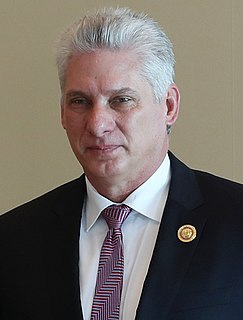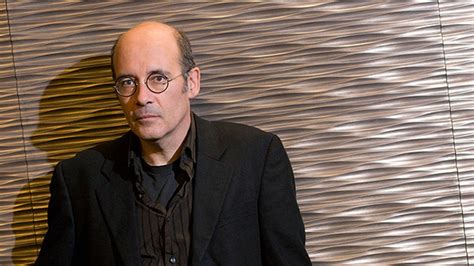Top 57 Neoliberalism Quotes & Sayings
Explore popular Neoliberalism quotes.
Last updated on April 14, 2025.
Neoliberalism is going to fail by being replaced. The system is entirely broken. Whenever you have a system that equates a market economy with a market society and claims that capitalism is democracy, you've not only got a massive lie being imposed on the people, but you've got the foundation for a form of authoritarianism and a much more intensive form of class warfare.
There are many good reasons for young people to go off to college, open their minds, develop their skills and enjoy themselves. But probably the major attraction is the fact that income disparities have increased sharply between those who go to college versus those who do not. This pattern corresponds with the stagnation of average wages since the early 1970s. The reality under neoliberalism has been that, if you want to have a decent shot at a good-paying job with a chance for promotions and raises over time, the most important first step is to get a college education.
Neoliberal democracy. Instead of citizens, it produces consumers. Instead of communities, it produces shopping malls. The net result is an atomized society of disengaged individuals who feel demoralized and socially powerless. In sum, neoliberalism is the immediate and foremost enemy of genuine participatory democracy, not just in the United States but across the planet, and will be for the foreseeable future.
Under the regime of neoliberalism, individual responsibility becomes the only politics that matters, and serves to blame those who are susceptible to larger systemic forces. Even though such problems are not of their own making, neoliberalism's discourse insists that the fate of the vulnerable is a product of personal issues ranging from weak character to bad choices or simply moral deficiencies. This makes it easier for its advocates to argue that poverty is a deserved condition.
Violence, with its ever-present economy of uncertainty, fear, and terror, is no longer merely a side effect of police brutality, war, or criminal behavior. It has become fundamental to neoliberalism as a particularly savage facet of capitalism. And in doing so it has turned out to be central to legitimating those social relations in which the political and pedagogical are redefined in order to undercut possibilities for authentic democracy.
Nations are reorienting toward the national interest and away from Malthusianism and neoliberalism, which is good for nuclear and bad for renewables. The evidence is overwhelming that our high-energy civilization is better for people and nature than the low-energy civilization that climate alarmists would return us to.
Kalecki thus precisely predicted the economic and political U-turn that occurred with the advent of neoliberalism. Kalecki also argued that fundamental institutional changes, especially regarding wage-setting and other aspects of the employment relationship, would be essential if full employment was to be sustained.
It turns out that we're actually capable of something other than neoliberalism and actually we're really capable of enjoying ourselves more than we do under neoliberalism. It feels that if neoliberalism is first about privatizing desire and imagination before the economy, then we're in this process of publicizing it again.
I got involved in cultural studies because I didn't think life was purely economically determined. I took all this up as an argument with economic determinism. I lived my life as an argument with Marxism, and with neoliberalism. Their point is that, in the last instance, economy will determine it. But when is the last instance?
Under neoliberalism everyone has to negotiate their fate alone, bearing full responsibility for problems that are often not of their own doing. The implications politically, economically and socially for young people are disastrous and are contributing to the emergence of a generation of young people who will occupy a space of social abandonment and terminal exclusion.
One of the things that neoliberalism does is, it relies on flexible workforces who are hired and fired at will and who are basically disposable labor. You can use them. You can get rid of them. They have no rights; they have no security. Their lives and well-being are made and unmade at the whim of those who are exercising the calculus. So, instead of looking at the institution and objecting to that kind of organization, people just go, "I'm a failure;"; "I'm not working hard enough"; or, "I'm not as smart as the next person."
Where neoliberalism thrives is in having done something that we haven't seen before. There is a merging of culture, politics, and power under neoliberalism that's unprecedented. They control the cultural apparatuses. And what I mean by "cultural apparatuses" is all those institutions that are about the production of knowledge, values, dispositions, and subjectivities. They control them.
All cultures forged by nations—the noble indigenous past of America, the brilliant civilization of Europe, the wise history of Asian nations, and the ancestral wealth of Africa and Oceania—are corroded by the American way of life. In this way, neoliberalism imposes the destruction of nations and groups of nations in order to reconstruct them according to a single model. This is a planetary war, of the worst and cruelest kind, waged against humanity.
The difference between neoliberalism and fascism or Nazism or other forms of totalitarianism is that it takes questions of ideology seriously. It takes the educational sphere seriously, and it tells people there's no alternative; that market freedom is really freedom in general; that a rabid kind of individualism is all that matters; that as Ayn Rand used to say, "self interest is the ultimate virtue" - and people believe this stuff. Because they have no other discourse.
Neoliberalism, arguably, sets the course for this kind for this kind of neo-extremism, this right-wing extremism that we are facing. The only way we solve that crisis, the rise of the right-wing extreme, is by truly progressive policies that address this crisis of economic security. That will not come from the lesser evil.
We often confuse or loosely use the ideas of crony capitalism or neoliberalism to actually avoid using the word "capitalism", but once you've actually seen, let's say, what's happening in India and the United States - that this model of US economics packaged in a carton that says "democracy" is being forced on countries all over the world, militarily if necessary, has in the United States itself resulted in 400 of the richest people owning wealth equivalent [to that] of half of the population.
Neoliberalism eats its own children. Disposability is central to how neoliberalism functions. I would not like to romanticize that, though, by suggesting that it creates dreamers. I would like to suggest that the radical imagination is so powerful, when employed collectively, that people will attempt to find solutions in ways that challenge the very conditions that made them disposable. That's where this sort of thing becomes interesting. We need to be careful about the dreaming quality here.
Capitalism, in my estimation, is not about democracy. I think we're beginning to see an understanding of this. We see it in the Black Lives Matter movement. We see it among black youth who are now struggling and trying to make connections internationally with other groups and trying to figure out what's going on in the world and the ways things like police violence and systemic violence all come together under neoliberalism.
Although the precariat does not consist simply of victims, since many in it challenge their parents' labouring ethic, its growth has been accelerated by the neoliberalism of globalisation, which put faith in labour market flexibility, the commodification of everything, and the restructuring of social protection.
Neoliberalism is vulnerable. When it comes to talking about social provisions, the only argument they have is the argument of barbarians: that social provisions make people dependent, and dependency is an evil, and people have to pick themselves up by their bootstraps. And that is such bullshit that it boggles my mind.
Clinton provided the final transition between decaying old-style liberalism and the new neoliberalism and neoconservatism - which are kind of incestuous first cousins. That goes for trade policy; for deregulation of major industries, from the utilities to communications companies to the banking industry to the insurance industry; all the way to continuing to wage war on Iraq. All of that is a living artifact of Clinton Time.
You can't wait neoliberalism out, because the class war will become more consolidated; the punishing state will increase. They'll increasingly solve problems by putting more people in jail and by criminalizing all kinds of behaviors and by appealing to racist attitudes about immigrants, blacks, minorities. They'll just intensify class warfare, that's all. It'll get to the point where the true nature of the authoritarian state will be obvious.
Neoliberalism became the leading economic ideology in the U.S. and in the U.K. during Ronald Reagan's and Margaret Thatcher's mandates. In this way, the leaders of the free world offered a viable solution to the economic crisis at the time: competition, deregulation, outsourcing, to name a few buzz words that have since become common place.































